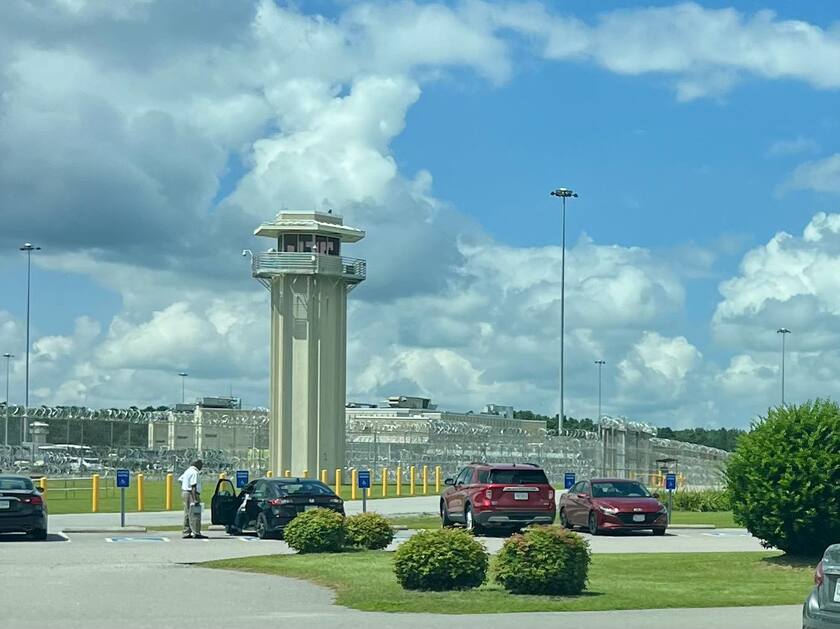Shaken Chains: Building Faith on the Rock of Redemption
Acts 16:16-18
Once when we were going to the place of prayer, we were met by a female slave who had a spirit by which she predicted the future. She earned a great deal of money for her owners by fortune-telling. She followed Paul and the rest of us, shouting, "These men are servants of the Most High God, who are telling you the way to be saved." She kept this up for many days. Finally Paul became so annoyed that he turned around and said to the spirit, "In the name of Jesus Christ I command you to come out of her!" At that moment the spirit left her.
This soothsayer, (in Greek, pneuma pythona, literally a “python spirit”) enabling fortune-telling for profit, is dispossessed and so are the men who controlled her. Her mind was freed from the spirit of divination, and her owners were freed from the hope they had in her for money making. It's really horrible when you think about how these men used and took advantage of this woman who was obviously mentally impaired. She was a commodity to them, not a person. They're not commenting on her well being or status in the community being impacted by her encounter with Paul and Silas. Mainly they are simply concerned that their honeypot has been taken from them.
So, as a result these men charge Paul and Silas with crimes against Rome and the king. And the crowds in the marketplace join them in their complaint. The imprisonment and beatings that followed were brutal, public flogging without trial, a violation against Paul and Silas even under Roman law for citizens like Paul (which he later leverages).
Acts 16:20-21
They brought them before the magistrates and said, "These men are Jews, and are throwing our city into an uproar by advocating customs unlawful for us Romans to accept or practice."
As a result, Paul and Silas are beaten and incarcerated. While they were locked up, Paul and Silas are singing hymns and praying to God as the other prisoners are watching. Following this special time away with God, many miraculous events take place. But there's something I want you to notice. Watch as these things happen...
Acts 16:25-31
About midnight Paul and Silas were praying and singing hymns to God, and the other prisoners were listening to them. Suddenly there was such a violent earthquake that the foundations of the prison were shaken. At once all the prison doors flew open, and everyone’s chains came loose. The jailer woke up, and when he saw the prison doors open, he drew his sword and was about to kill himself because he thought the prisoners had escaped [which was his responsibility payable with his own life]. But Paul shouted, "Don’t harm yourself! We are all here!" The jailer called for lights, rushed in and fell trembling before Paul and Silas. He then brought them out and asked, "Sirs, what must I do to be saved?" They replied, "Believe in the Lord Jesus, and you will be saved—you and your household."
So, at this point these witnesses to these events are having an experience that has literally shook their lives up. And their faith was shattered by these things. I mean to say, the faith they had in the things they had previously been taught to believe.
I believe God allowed Paul and Silas to be imprisoned just so they could reach this jailer with the gospel, and all the others there as well. Paul had to endure beatings and imprisonment as a sacrifice for Jesus Christ. And he did sacrifice his time, his energy, his entire life.
The jailer said to Paul and Silas, "Sirs, what must I do to be saved?"
Paul said, "join the church, pay your tithes, attend mass services and say ten hail Mary's."
No, obviously he didn't say those things. I'm being a little bit facetious, and maybe at the same time trying to highlight and make a point about what we do and teach as church people. But what did Paul and Silas teach really?
Verse 31 They replied,
"Believe in the Lord Jesus, and you will be saved—you and your household."
But they didn't stop there either. This wasn't some cheap grace. They didn't suggest they could just ask Jesus into their hearts and make him their Savior.
Verse 32
"Then they spoke the word of the Lord to him and to all the others in his house."
They instructed them in the faith. They walked them through the scriptures and guided them in their belief. These men of faith, these evangelists, didn't just proclaim Jesus Christ and his gospel, they taught the gospel truths and spent time teaching these things, the things that Jesus taught.
Our faith has to be established in fact. God's word is the fact on which our faith should be founded. The reason being, the word of God remains, it cannot be changed. Our faith can experience some event like observing a sunrise, but the seasons and the weather changes. Things like these are indeterminate, they shift in time, and you can't build your faith on those shifting sands.
It’s a powerful reminder of how God uses unexpected trials to advance the gospel and transform lives. The point about building faith on the unchanging word of God rather than fleeting experiences resonates deeply, echoing Jesus’ parable of the wise and foolish builders in Matthew 7.
Matthew 7:24-27
"Everyone then who hears these words of mine and does them will be like a wise man who built his house on the rock. And the rain fell, and the floods came, and the winds blew and beat on that house, but it did not fall, because it had been founded on the rock. And everyone who hears these words of mine and does not do them will be like a foolish man who built his house on the sand. And the rain fell, and the floods came, and the winds blew and beat against that house, and it fell, and great was the fall of it."
All of this drives home a crucial point against superficial religion. No, it wasn’t about rituals, tithing, or rote prayers; it was "Believe in the Lord Jesus, and you will be saved—you and your household." And this wasn’t "cheap grace", they immediately "spoke the word of the Lord" to him and his family, instructing them in the faith.
"Believe" here is more than an intellectual assent; it’s a wholehearted trust and commitment to Jesus as Lord, involving repentance and obedience, often leading to baptism (as seen in verse 33). This mirrors other salvation responses in Acts, like at Pentecost (Acts 2:38), where belief is the entry point, but teaching and discipleship follow to ground new converts in the Scriptures. And again, another example on the road to Emmaus when Jesus met the two disciples and instructed them in the Old Testament prophecies.
Events like earthquakes or sunrises can inspire faith, but they’re transient; the Bible calls us to build on the rock of Christ’s teachings (Matthew 7:24-27). In this story, God orchestrates hardship for redemptive purposes, reaching the jailer, his household, and likely the other prisoners, showing that suffering for the gospel isn’t wasted but purposeful. This is something we rely upon in the Kairos Prison Ministry. It's an ongoing ministry. We don't simply blow into town like a wildfire and then blow away or burn out. We continue to teach and encourage a growing faith community. It's church building, even inside that environment.
Not just in a momentary "earthquake" of change but through sustained teaching and community building, much like the ongoing discipleship Paul modeled. In the jailer’s household, salvation wasn’t a one-off event; it involved speaking "the word of the Lord" (Acts 16:32), leading to baptism and hospitality, fostering a nascent faith community even in the shadows of a prison. Kairos Prison Ministry embodies this beautifully, focusing on long-term spiritual transformation rather than fleeting interventions. As a Christian faith-based organization, it addresses the needs of incarcerated men, women, youth, and their families through programs like Kairos Inside, which starts with a 3½-day weekend retreat to introduce God’s love and forgiveness, but emphasizes continuing ministry to build Christian communities within prisons. This ongoing aspect, monthly reunions, mentoring, and prayer and share groups, helps reduce recidivism, decrease violence, and nurture lasting faith, turning prisons into places of hope and healing. This resonates with my wildfire analogy, Kairos doesn’t just ignite a spark; it tends the flame, it keeps pouring more wood on the fire, encouraging participants to live out Matthew 7:24-27 by grounding their lives in the scriptural foundations of Christ’s teachings amid life’s storms.
Prayer:
Heavenly Father, we thank You for using trials like those of Paul and Silas to shake loose our doubts and draw souls to Your saving grace. We ask that you strengthen those in prisons today, both physically and spiritually, and empower ministries like Kairos to build enduring communities of faith on Your unchanging Word. In Jesus’ Holy name, Amen.
For More Information About Kairos Prison Ministry Visit This Site:
KPMI - Downloads https://mykairos.org/downloads.html




















